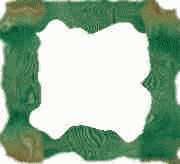
「But the chief contribution of Taoism to Asiatic life has been in the realsm of aesthetics.
Chinese historians have always spoken of Taoism as the "art of being in the world," for it deals with the present-ourselves.
It is in us that God meets with Nature, and yesterday parts from to-morrow.
The Present is the moving Infinity, the legitimate sphere of the Relative.
Relativity seeks Adjustment; Adjustment is Art.
The art of life lies in a constant readjustment to our surroundings.
Taoism accepts the mundane as it is and, unlike the Confucians and the Buddists, tries to find beauty in our world of woe and worry.
The Sung allegory of the Three Vinegar Tasters explains admirably the trend of the three doctrines.
Sakyamuni, Confucius, and Laotose once stood before a jar of vinegar-the emblem of life- and each dipped in his fingers to taste the brew.
The matter-of- fact Confucius found it sour, the Buddha called it bitter, and Laotose pronounced it sweet.」 (From the Book of Tea-Taoism and Zennism, p.44, Charles E. Tuttle Co., Rutland, Vermont-Tokyo, Japan)
How do you answer if you dipped your finger to taste a vinegar?
I would like to answer the taste as it is.
I think there is the possibility the vinegar is sour, bitter or sweet depend on what kind of vineger you tasted.
The fact means you don't know who is honest to answer.
The feeling of taste will be also different depending on how much you tasted at once.
Therefor, you have to adjust the quontity of vinegar and taste at once.
It means every one have to taste at the same condition- need to adjust the sciantific condition.
Do you think Okakura Kakuzou had the special intention to the expression of "found", "called" and "pronounced" ?
The matter-of -fact, I am not sure how do I understand the characters of three, Confucious, Buddha and Laotse.
Image Designer: Izumi Mori
No comments:
Post a Comment